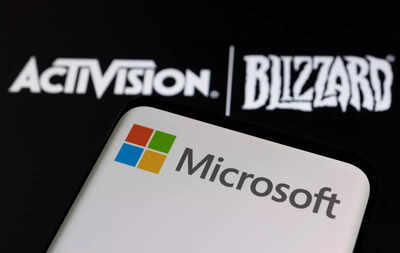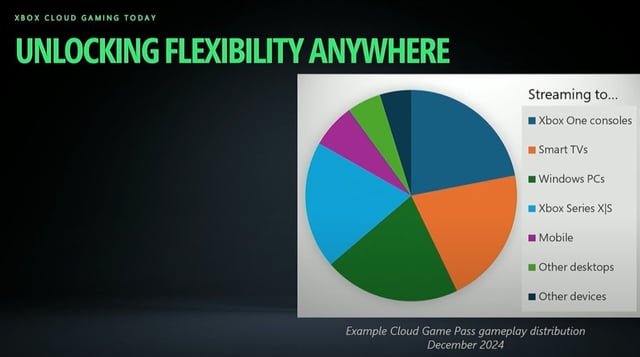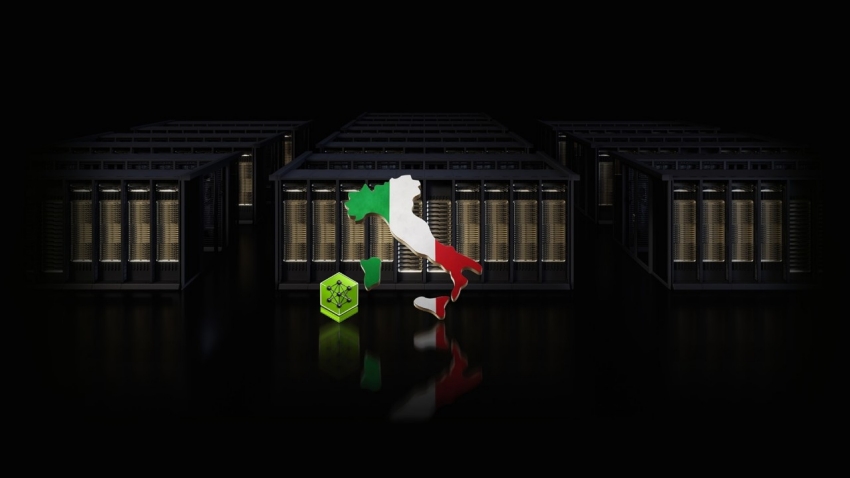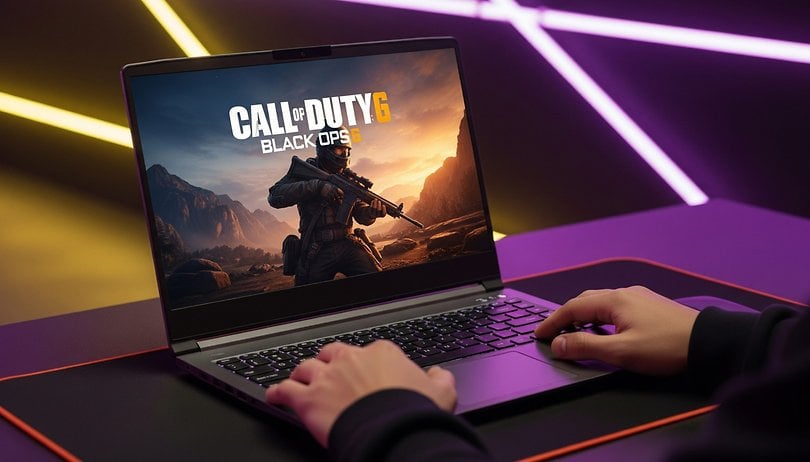Microsoft Embraces the Cloud: Call of Duty on GeForce Now Signals a New Era for PC Gaming Accessibility Is this partnership a game-changer, or just another subscription service fighting for your bandwidth?

Is this partnership a game-changer, or just another subscription service fighting for your bandwidth?
Hold onto your gaming mice, folks, because this one came out of left field. Microsoft, fresh off the Activision Blizzard acquisition, just announced that select titles, including the behemoth that is Call of Duty: Modern Warfare III, are heading to NVIDIA's GeForce Now cloud gaming service. The initial reaction across the PC gaming community, particularly on subreddits like r/GeForceNOW and r/pcgaming, has been a mix of cautious optimism and outright skepticism. While the promise of playing AAA titles on underpowered hardware is enticing, the ghosts of input lag and bandwidth caps still haunt the dreams of many a PC gamer. Is this truly a step towards gaming nirvana, or just another subscription service vying for our hard-earned cash and precious internet bandwidth? Let's dive in.
Microsoft's Evolving Strategy: From Xbox-Centric to Cloud-Agnostic?
This move signals a significant shift in Microsoft's cloud gaming strategy. Previously, their focus was almost entirely on Xbox Cloud Gaming, a service tightly integrated with the Xbox ecosystem. You needed an Xbox Game Pass Ultimate subscription to access it, effectively locking it to those already invested in their console platform. Now, by partnering with NVIDIA, Microsoft is potentially opening the floodgates to PC gamers who may have never considered an Xbox console or a Game Pass subscription.
Think about it: Microsoft is cleverly positioning Xbox Cloud Gaming as their premium offering – the all-in-one ecosystem solution. GeForce Now, on the other hand, becomes the "a la carte" option, offering access to specific games, like Call of Duty, without forcing users to buy into the entire Xbox ecosystem. It’s a smart way for Microsoft to compete with Sony and other players, by broadening their reach and capturing more of the PC gaming market without cannibalizing their existing subscriber base. They're essentially saying, "Want to play Call of Duty on that potato PC? GeForce Now is your answer."
Impact on PC Gamers: A Game Changer or Just a Bandwidth Hog?
The implications for PC gamers are multifaceted, and hinge on how well the execution lives up to the hype.
Access to AAA Titles Regardless of Hardware: This is the big one. Imagine playing Call of Duty: Modern Warfare III with maxed-out "Ultra" settings, ray tracing enabled, and buttery-smooth frame rates, all on a laptop with integrated graphics. That's the promise of GeForce Now. For gamers stuck with older hardware or those who simply can't justify the cost of a high-end gaming rig, this partnership could be a game-changer. Suddenly, AAA titles become accessible, leveling the playing field and eliminating the need for constant hardware upgrades.

Reduced Hardware Requirements: The constant cycle of upgrading GPUs and CPUs to keep pace with the latest games is a burden for many PC gamers. Cloud gaming, at least in theory, alleviates this pressure. Instead of investing thousands in new hardware, you're essentially renting a high-end gaming PC in the cloud. This allows you to enjoy visually stunning games without the financial strain. However, and this is a big however, it shifts the cost to a recurring subscription fee.
Game Ownership Models in Flux: This brings us to the potential shift away from traditional game ownership. While buying a game outright grants you a (somewhat) permanent license (subject to DRM and platform availability, of course), cloud gaming pushes towards a subscription-based model. The pros are lower upfront costs, allowing you to try more games without breaking the bank. The cons are equally significant: ongoing subscription fees that can add up over time and a complete reliance on a stable internet connection. If the service goes down, or you cancel your subscription, your access to the games vanishes. Remember what happened when Stadia shut down? Those digital game libraries vanished overnight. Cloud gaming could potentially exacerbate this issue.
Developer Perspective: Cloudburst Studios Sees Opportunity
I caught up with Elena Ramirez, co-founder and CTO of Cloudburst Studios, a small indie studio making waves in the PC gaming scene. Elena is currently attending a cloud gaming conference in Reykjavik, Iceland, eager to explore partnerships for her studio's upcoming sci-fi strategy game.
"We're incredibly excited about the potential of cloud gaming," Elena told me. "Optimizing our game for GeForce Now presents both technical challenges and huge benefits. From a technical standpoint, we're focusing on maximizing frame rate stability and minimizing latency. The Vulkan API has been instrumental in achieving cross-platform compatibility and efficient resource utilization. We're using techniques like frame pacing and input prediction to make the experience as smooth as possible, even with varying network conditions."

Elena emphasized the opportunities for indie developers. "Cloud gaming can dramatically expand our reach. We can get our game in front of players who might not have the hardware to run it locally. The revenue opportunities are also significant. Being featured on a platform like GeForce Now can give us a massive boost in visibility and sales."
However, Elena also voiced some concerns. "The biggest challenge is infrastructure. Cloud gaming relies on a robust and reliable internet connection. If the infrastructure isn't there, the experience will suffer, and that could hurt our game's reputation, especially since we're not a major franchise like Call of Duty. We're also keeping a close eye on data privacy regulations. We need to ensure we're handling player data responsibly and complying with all applicable laws."
NVIDIA's Take: Accessibility is Key
"This partnership is a win for PC gamers," stated Jensen Huang, CEO of NVIDIA, in a recent press release. "It delivers blockbuster Activision games, like Call of Duty, to anyone with a screen, turning any old laptop into a high-end gaming rig. We are committed to making high-performance gaming accessible to everyone, regardless of their hardware."

The Ethical Minefield: Accessibility vs. Ownership
Cloud gaming presents an ethical tightrope walk. On one hand, it democratizes access to gaming, allowing individuals with limited financial resources or outdated hardware to experience the latest AAA titles. This can be seen as a positive step towards inclusivity, breaking down barriers and fostering a more diverse gaming community.

However, this accessibility comes at a cost. The reliance on subscription services and constant internet connectivity creates a new form of digital dependency. As we've seen with other digital platforms, content can be removed, licenses can expire, and access can be revoked at any time. The concept of owning a game becomes increasingly blurred, replaced by a temporary right to play as long as you maintain your subscription and the service remains active.
Legal Landscape: Anti-Trust Concerns on the Horizon?
Could this partnership, and the broader trend of cloud gaming consolidation, raise anti-trust concerns? It's a question regulators will likely be asking. If a limited number of companies control access to popular game titles via cloud services, it could stifle competition and potentially lead to higher prices and less consumer choice. While not directly analogous, the concerns echo some of the arguments made in the anti-trust lawsuit against Microsoft regarding Internet Explorer in the late 1990s, where the company was accused of using its dominance in the operating system market to unfairly promote its browser. The potential for a similar scenario, where a few powerful players control access to games via the cloud, certainly exists.

The Future of PC Gaming: Cloud or Local?
So, will cloud gaming become the dominant force in PC gaming, or remain a niche option? The answer depends on several factors. Improvements in internet infrastructure, particularly the widespread adoption of 5G and fiber optic connections, are crucial. Latency reduction technologies need to continue to evolve to provide a truly seamless and responsive gaming experience. And, of course, the availability of high-quality content optimized for cloud streaming is paramount. Breakthroughs in edge computing, where processing is done closer to the user, could also significantly impact the future of gaming, reducing latency and improving performance.

Ultimately, the success of cloud gaming hinges on its ability to deliver a consistently high-quality experience that rivals local gaming, without sacrificing control or ownership. The Microsoft/NVIDIA partnership is a significant step in that direction, but the journey is far from over.



Now it's your turn. What are your thoughts on the Microsoft/NVIDIA partnership and its potential impact on the future of PC gaming? Do you prefer the control and ownership of local gaming, or are you willing to embrace the convenience and accessibility of cloud gaming? Let us know in the comments below!